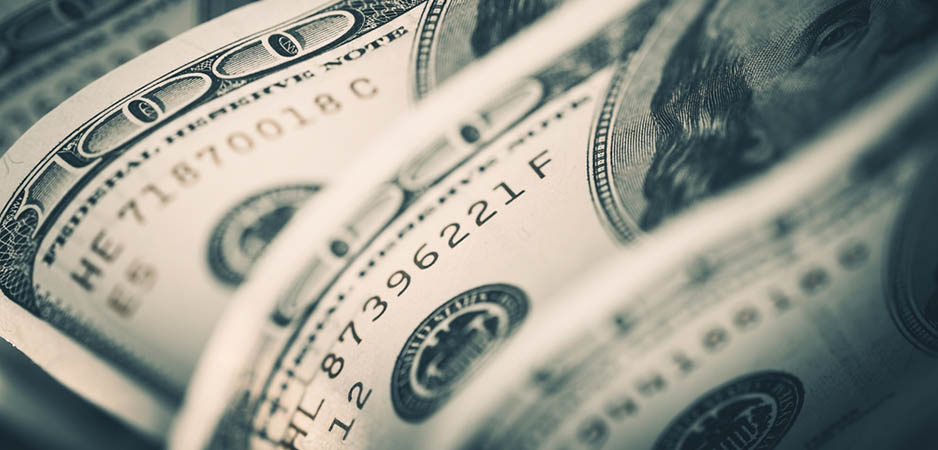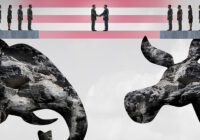Ben Stein thinks Alexandria Ocasio-Cortez would be less like Hitler if she simply got interested in making money. Is that really his message?
Why the media even bothers to question people like Ben Stein about major issues leaves some of us wondering, especially when we know there are dozens of serious and well-known analysts with valuable insights who are never invited for interviews. Who is Ben Stein that we should even be curious to know what he thinks?
Stein was a speech writer for Richard Nixon and Gerald Ford. That alone should make him suspect. But he has also had a career in media. That makes him a recognized media personality, without being a veritable celebrity. However, name recognition is enough for the hyperreal media. On occasion, Stein can be reasonably competent in expressing his thoughts, but no serious commentator considers him a thought leader or even a thinker. He’s just another reasonably famous person with opinions.
So, now he comes out in a Fox News interview where he compares firebrand rookie legislator Alexandra Octavia-Cortez to Adolf Hitler, and The Huffington Post considers this news. And what does the HuffPost find so interesting and profound in Stein’s discourse? This reflection: “Making money is one of the most of harmless things there is to do in the whole world. And that’s what our society is about.”
Here is today’s 3D definition:
Harmless:
An adjective used to reassure people that what is obviously harmful is morally acceptable
Contextual note
Alexandria Ocasio-Cortez was recently elected to the House of Representatives and has emerged as an energetic voice of the people, or at least of people who dare to think seriously about how the system works rather than simply complaining that it doesn’t work for them.
Her message is impertinent and provocative. She punches with style and power far above her weight class. She is stunningly articulate as well as convincingly sincere and apparently, at least for now, uncontaminated by political routine. Her age, her passion, her fearlessness and even her looks and demeanor mean that, for the media, she is news. She reassures some and unsettles others — a perfect combination for success in the media — while exploiting the trend launched by elder statesman Bernie Sanders of calling out the ruling class in the boldest terms.
Ben Stein isn’t news, but a recent trend in the media tells us that anyone who uses the example of Hitler to make comparisons can become news, especially when the comparison targets someone as newsworthy as Ocasio-Cortez.
Historical note
With the rise of capitalism in the 19th century, the activity of making money definitively lost the shame that was once attached to it in the Christian West. For more than 1,500 years, society took seriously St Paul’s famous quote, “the love of money is the root of all kinds of evil.”
On Fox Business, Ben Stein compares Alexandria Ocasio-Cortez’s rhetoric to Hitler, warns about mass murder and genocide https://t.co/hxW8H3NdwSpic.twitter.com/kaQvzACaWf
— Media Matters (@mmfa) January 23, 2019
Even those rare individuals who dedicated themselves to making money felt the need to show some restraint in pursuing their passion. The bulk of humanity, right up to modern times, has sought to earn money principally to survive. Only an elite could take seriously the idea of “making money,” which suggests accumulation. But the new religion of capitalism, with its premise that people with money drive the economy, and the growth of the consumer society, in which money is needed for spending, have elevated the idea of making money to a cultural ideal. Money can no longer be thought of as a source of harm.
Nothing illustrates the exploitation of the notion of harmlessness more than the trend toward big data and artificial intelligence, which we are invited to see as a form of positive and harmless progress. Apple’s CEO, Tim Cook, recently warned about how the data we are constantly producing about ourselves creates “an enduring digital profile and lets companies know you better than you may know yourself. Your profile is a bunch of algorithms that serve up increasingly extreme content, pounding our harmless preferences into harm.”
What, after all, could be more harmless in the eyes of any member of the consumer society than the act of expressing one’s preferences? We love letting people know what we like and may even be ready to buy. An article in Wired quotes George Soros speaking at Davos about the frightening implications of the Chinese social rating system: “[S]ome Chinese find it rather attractive because it provides information and services that aren’t currently available and can also protect law-abiding citizens against enemies of the state.”
As Cook points out, in the world of algorithms what we perceive as harmless choices combine to produce, for those who know how to use them, something that can easily become deeply harmful. The Chinese justify it as a means of achieving harmony, a core value of their culture, making their life in society easier. The reason something similar may happen in the West is, as Cook warns, that clever people will use the algorithms for the purpose of that “harmless” activity admired by Stein: “making money.” People in the consumer society will let it happen because it honors their preferences and comforts their narcissism.
As David Samuels writes in another article in Wired: “Big Brother is an emerging reality in China. Yet in the West, at least, the threat of government surveillance systems being integrated with the existing corporate surveillance capacities of big-data companies like Facebook, Google, Microsoft, and Amazon into one gigantic all-seeing eye appears to trouble very few people.”
In both cases, people accept a system that claims to be harmless. Why? Because the majority of Chinese trust their government. The majority of Americans trust people who make money.
*[In the age of Oscar Wilde and Mark Twain, another American wit, the journalist Ambrose Bierce, produced a series of satirical definitions of commonly used terms, throwing light on their hidden meanings in real discourse. Bierce eventually collected and published them as a book, The Devil’s Dictionary, in 1911. We have shamelessly appropriated his title in the interest of continuing his wholesome pedagogical effort to enlighten generations of readers of the news.]
The views expressed in this article are the author’s own and do not necessarily reflect Fair Observer’s editorial policy.
Support Fair Observer
We rely on your support for our independence, diversity and quality.
For more than 10 years, Fair Observer has been free, fair and independent. No billionaire owns us, no advertisers control us. We are a reader-supported nonprofit. Unlike many other publications, we keep our content free for readers regardless of where they live or whether they can afford to pay. We have no paywalls and no ads.
In the post-truth era of fake news, echo chambers and filter bubbles, we publish a plurality of perspectives from around the world. Anyone can publish with us, but everyone goes through a rigorous editorial process. So, you get fact-checked, well-reasoned content instead of noise.
We publish 2,500+ voices from 90+ countries. We also conduct education and training programs
on subjects ranging from digital media and journalism to writing and critical thinking. This
doesn’t come cheap. Servers, editors, trainers and web developers cost
money.
Please consider supporting us on a regular basis as a recurring donor or a
sustaining member.
Will you support FO’s journalism?
We rely on your support for our independence, diversity and quality.






